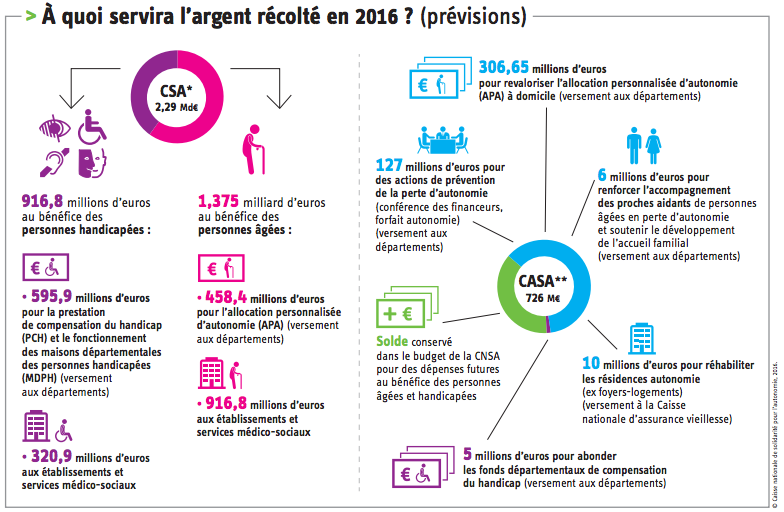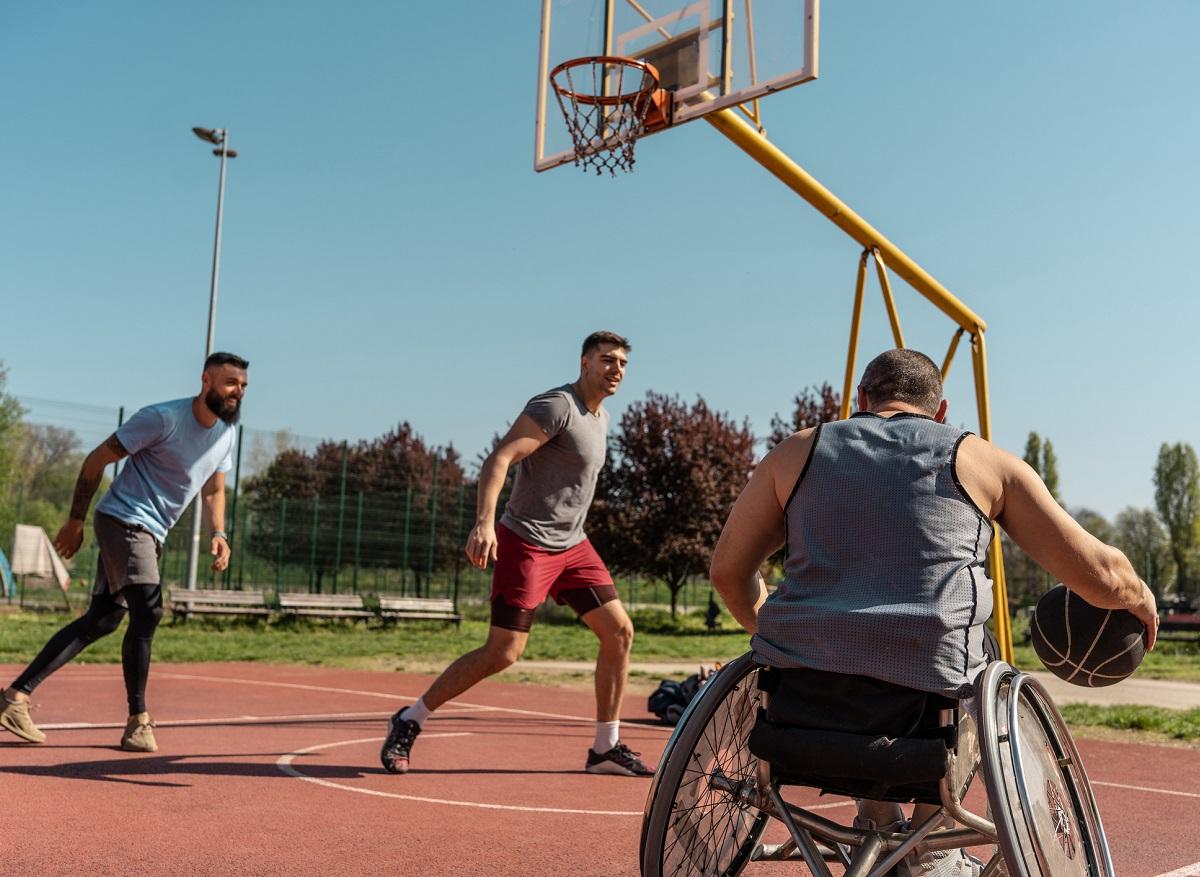The day of solidarity, set for Pentecost Monday, should bring in 2.29 billion. It will be used to finance the care of people with loss of autonomy.

Created in 2004 to finance the care of the elderly and disabled people, the solidarity day is initially a working day without pay. Except that since 2008, Pentecost Monday has been a public holiday again. Companies are therefore free to set the date and terms of the solidarity day. Among the possible choices, it can be another public holiday, an RTT day, etc.
Since its inception in 2004, it has brought in a total of 28 billion euros. And in 2016, 2.29 billion euros should be collected under the solidarity contribution for autonomy (CSA). This figure remains a forecast which may change depending on the economic situation in France. In a press release issued a few days ago, the National Solidarity Fund for Autonomy (CNSA) tells us where the money goes.
The majority for the elderly
The CNSA will redistribute the majority of the sum for the benefit of the elderly (1.375 billion euros). Part of this money will be paid to the departmental councils for the financing of thepersonalized autonomy allowance (APA) with 458.4 million euros. The rest will go to establishments and medico-social services welcoming this public (916.8 million euros allocated).
In addition, 916.8 million euros will benefit people with disabilities. With this envelope, the departmental councils will be able in particular to finance the disability compensation benefit (PCH) and the functioning of departmental homes for disabled people; as well as establishments and medico-social services welcoming people with disabilities.
More concretely, the proceeds from this day worked will help, for example, to recruit the staff necessary to support people living in retirement homes or in specialized structures, to finance hours of home help for the elderly in loss of life. autonomy and for people with disabilities.
300 million for home help hours
Finally, since the 1er April 2013, the CSA is extended to retirees with the entry into force of the additional solidarity contribution for autonomy (CASA). This tax based on retirement and disability pensions as well as early retirement pensions extends the solidarity effort to retirees subject to income tax. In 2016, it should bring in 726 million euros. The sum will finance the measures provided for in the law relating to the adaptation of society to aging in order to improve support for the elderly losing their autonomy.
Concretely, nearly half of this sum (306.65 million euros) will increase the value of APA at home, that is to say increase the number of hours of home help for the elderly who are most need and reduce the level of financial participation of people (payment to departmental councils).

.
















